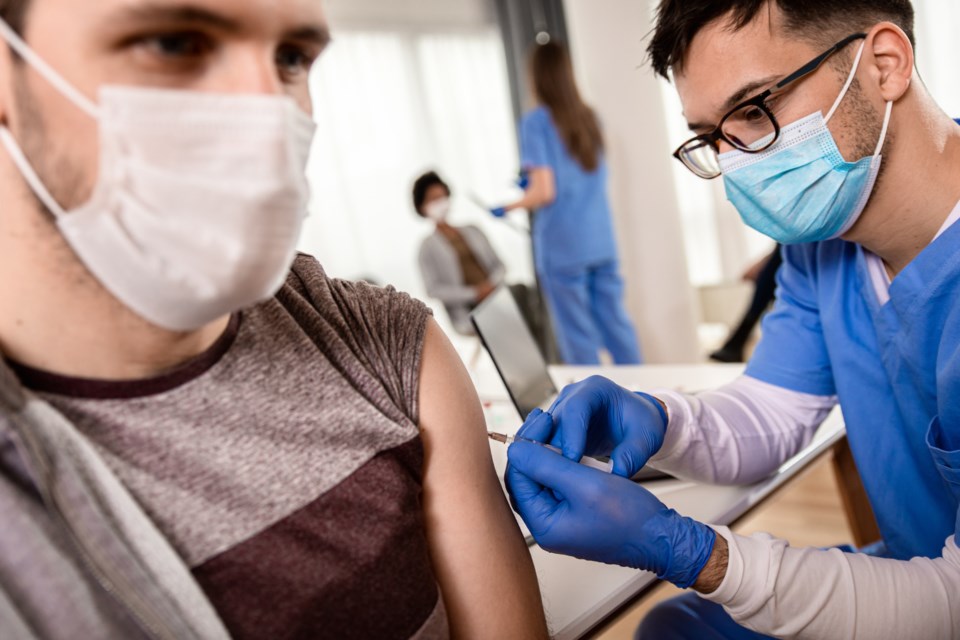NEWS RELEASE
REGION OF WATERLOO
**********************
Further to the Ministry of Health’s recent announcement, Region of Waterloo Public Health has been preparing for the fall respiratory illness season.
“We have been working with partners to plan for clinics this fall in community sites to ensure residents have access to vaccines,” said Dr. Hsiu-Li Wang, Medical Officer of Health. “We encourage everyone to reduce their risk this respiratory illness season, including their risk of hospitalization, by staying up to date on vaccinations.”
Influenza
Later this month, influenza vaccines will be available first for the high-risk populations, including hospitalized individuals, hospital staff and residents, and staff in long-term care homes, followed by those in retirement homes and other congregate settings.
On October 30, the flu vaccine will be available for the general public aged six months and older. Flu vaccines will be available through doctor and nurse practitioner offices, participating pharmacies, and public health clinics.
The first lab-confirmed local case of influenza has been reported in the region. Symptoms of flu are similar to COVID-19 and include fever, chills, cough, sore throat, stuffy/runny nose, headache, and muscle/joint aches.
The flu vaccine is the best protection against serious illness from the flu in those who are six months of age and older. Click here to learn more about influenza.
COVID-19
The new Moderna COVID-19 vaccine, approved this week by Health Canada, will target the XBB Omicron subvariants that have been the most common circulating strains and will be available later in September. Initial doses will be prioritized for higher-risk populations and more details will be provided once doses are distributed to Ontario.
The current versions of COVID-19 vaccines continue to be available for Ontarians, as long as it has been a recommended six months since their previous dose or infection.
Individuals can continue to access rapid antigen tests through Public Health. Health care providers can also order rapid antigen tests to share with patients free of charge. Eligible individuals can also continue to access COVID-19 molecular (PCR) testing at pharmacies and assessment centres. Click here to learn more about COVID-19.
RSV
Ontario is rolling out its first publicly funded vaccination program for respiratory syncytial virus (RSV) vaccine. The vaccine will be available for those 60 years and older living in long-term care homes, Elder Care Lodges, and for some retirement home residents.
Click here to learn more.
Vaccine Clinics
Region of Waterloo Public Health will continue to offer multiple clinics weekly for the COVID-19 vaccine at Regional Clinic Sites. When vaccines are available, the Region will be offering the updated COVID-19 and influenza vaccinations to high-risk individuals, through clinics and the neighbourhood nursing team. As vaccines become available for everyone, the Region will expand clinics to four days a week and will include offering vaccines through our Mobile Vaccination Bus.
For more information on where to get vaccinated:
- Once available, you can book a COVID-19 vaccine via the provincial website or call the Provincial Vaccine Contact Centre at 1-833-943-3900 (TTY: 1-866-797-0007 toll-free) from Monday to Friday (excluding holidays) from 8:30 a.m. to 5 p.m. Eastern time.
- For information on accessing an influenza vaccine, please contact your health care provider, participating pharmacy, or Region of Waterloo’s website.
If you are experiencing symptoms of respiratory illness, you should:
- Stay home
- Practice good hand hygiene by washing hands and using hand sanitizer
- Cover your mouth when you cough or sneeze
- Consider wearing a tight-fitting, well-constructed mask in indoor public settings, especially around anyone at higher risk of severe illness
- Do not visit people who are at higher risk of complications from respiratory illnesses, such as persons in hospitals, retirement/long-term care homes, seniors, or those who are immunocompromised
- Seek medical attention if you are experiencing severe or worsening symptoms.
The annual respiratory season usually starts in November and continues through spring (late April/May).
Public Health Ontario provides regular updates through their Respiratory Pathogen Bulletin, which can be found here.
*********************



